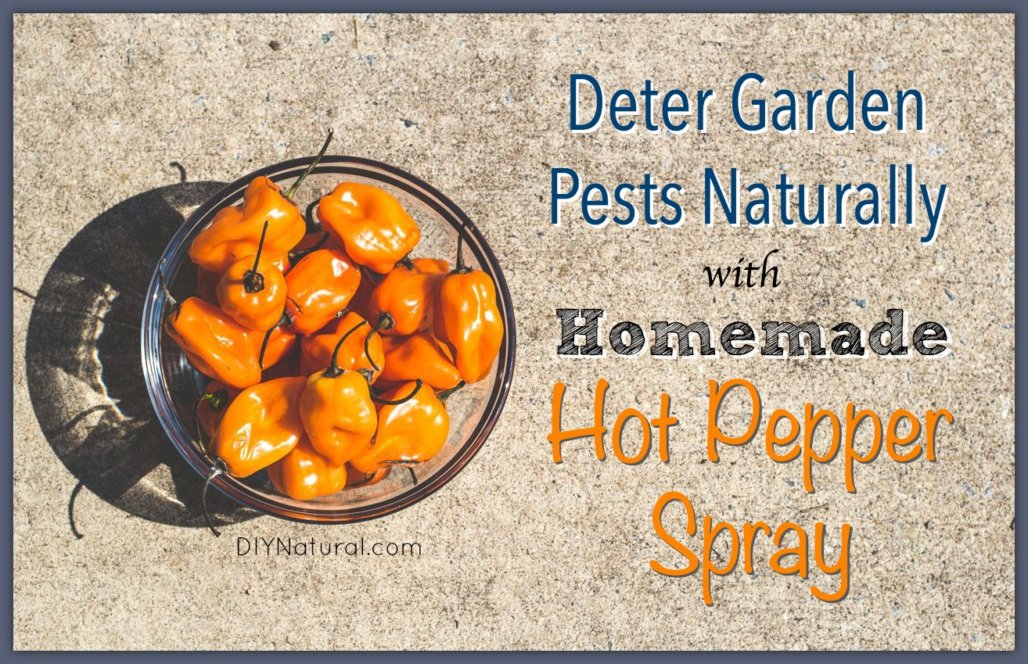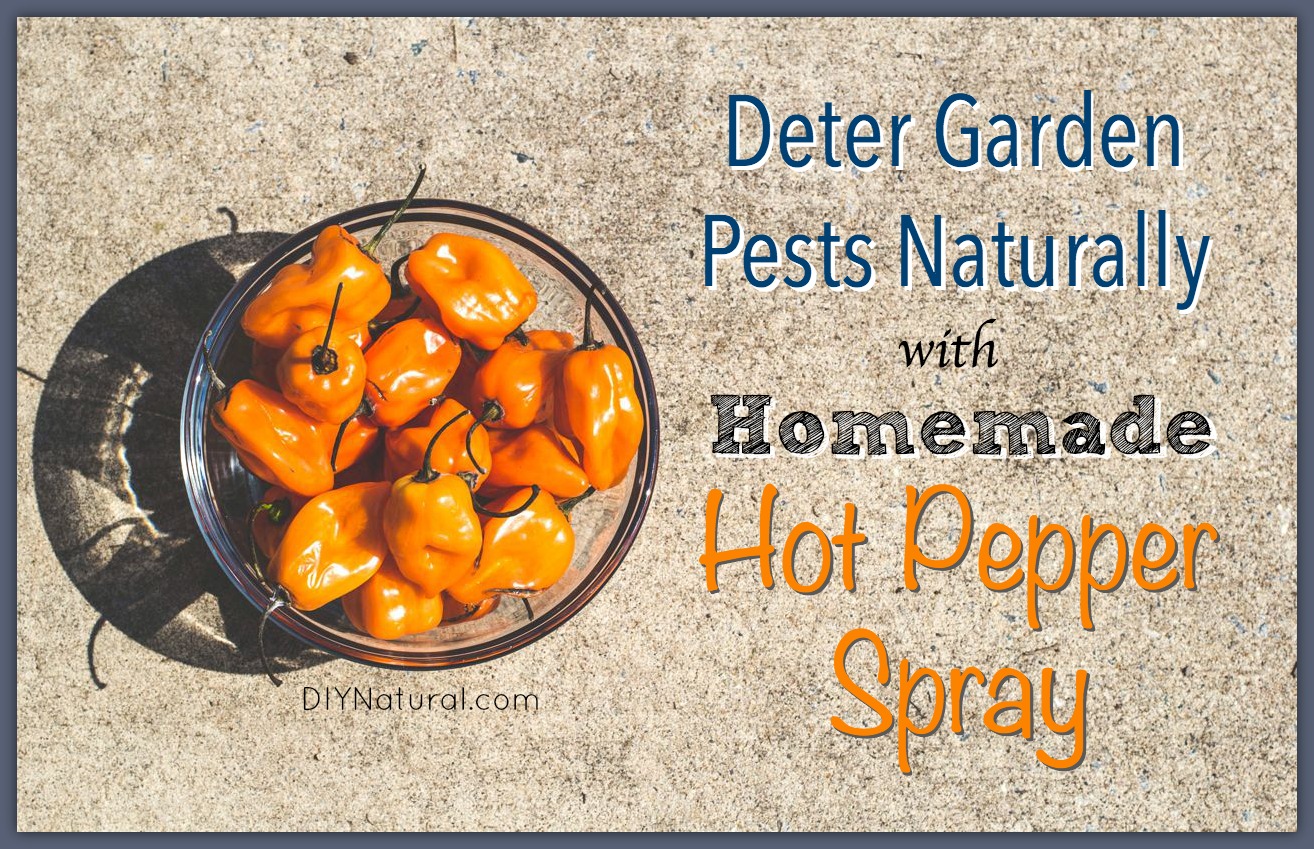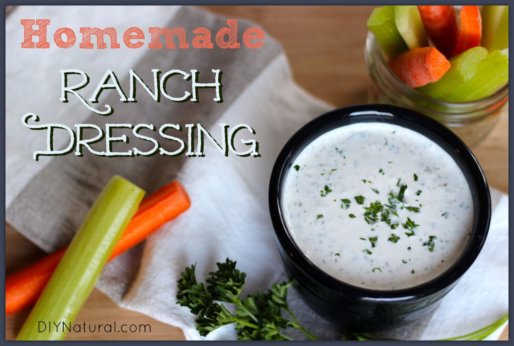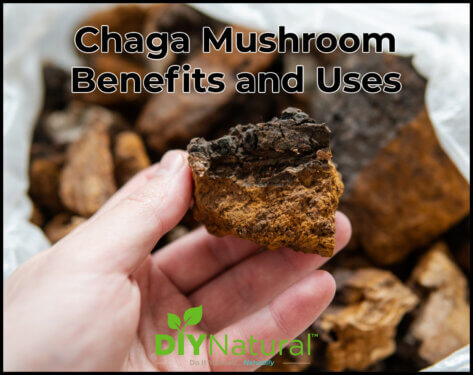
This homemade garden bug spray, with hot peppers, is a proven pest deterrent for your garden. Just mix it up, spray it on, and watch it work!
Late May is the time of year when a garden begins to get a personality. A few weeks ago, we had only a few tiny little plants popping up above the dirt, and now we have full rows of plants and enough weeds to keep us busy for the remainder of the summer. Not busy in a fun way, either; late May is also when we remember how much work gardening can be.
While the weeds are the most obvious issue with our garden right now, they’re not the only problem, and they aren’t the most harmful. Cosmetically, they’re kind of an eyesore, but they haven’t choked out any plants and they aren’t numerous enough to pull a significant amount of nutrients from the soil. We’ve lost a few plants to crows (though we’re taking measures to prevent more damage from birds), but even that isn’t our biggest problem. Right now, the biggest problem we’re facing is insect damage.

Homemade Hot Pepper Garden Bug Spray
I’ve talked about pollinators often enough that you guys know how I feel about them. Neonicotinoid pesticides aren’t even an option for us; anything that kills damaging pests could also kill our honeybees. Still, we have to do something. Our beans are already damaged and I don’t want the trauma to spread to any other plants, so we’ve decided to turn to an old, trusted method of organic pest-deterrent: homemade garden bug spray made from hot peppers!
Hot pepper spray is available in stores, but it’s expensive. Especially considering that it has to be reapplied frequently, the price of commercial hot pepper sprays can be prohibitively high. When my husband informed me that we needed to do something about the bugs in our garden and that we’d run out of the hot pepper spray we used last year, I decided to see what I could come up with myself. After lots of research and poking around, I came up with this:
Homemade Garden Bug Spray
Equipment
- gloves (like these)
- mask/dish towel (a mask like this works)
- goggles (something similar to this)
- 5 gallon bucket (found at hardware stores or online here)
- food processor (find a great one here)
- cheesecloth (find it here)
- garden sprayer (like this)
Ingredients
- 2 cups hot peppers, chopped (I used habaneros)
- 1 tbsp cayenne pepper
- 1 head of garlic
- 3 tbsp dish soap
- 4 gallons water
Directions
First, let me make it very clear that you need gloves for making this homemade garden bug spray!
How do I know this? Because I didn’t use gloves and I now consider that to be one of the most terrible decisions I’ve ever made. I don’t eat much spicy food and have next to no experience with hot peppers, so I vastly underestimated the burn of these little plants. My fingertips were still sore two days later, and let’s not even discuss the whole putting-in-my-contacts incident. (It was bad. I wore glasses for a long time after that.) Just take my word for it and wear the gloves, okay? Also, consider goggles and some kind of mask. I clipped a dish towel over my face, so it doesn’t have to be fancy, but this stuff will absolutely irritate your throat if you don’t protect yourself.
Having warned you fairly, I feel okay to give you the rest of the instructions.
Instructions
- To make your homemade garden bug spray, first, chop up your peppers and measure the two cups of them. Don’t worry about getting them finely chopped, but make sure that they’re small enough that you can get an accurate measurement.
- When they’ve been cut up, put them in the food processor with the garlic cloves (a whole bulb’s worth) and cayenne pepper and puree them. Add water as necessary to keep the food processor working correctly.
- When you’ve finished pureeing them, put them in a 5 gallon bucket and pour four gallons of water over them. Cover the bucket up and let the concoction sit for about 24 hours.
- Strain out the hot peppers (it works best to pour the liquid into another 5 gallon bucket and catch the peppers in cheesecloth or a tiny strainer) and add the three tablespoons of dish soap. This might seem like a strange addition, but the soap will help the spray spread out over and stick to the plant leaves.
- Once you have everything mixed and all of the pepper chunks out, pour the hot pepper spray into your garden sprayer. If you don’t have a garden sprayer, keep it stored in your bucket and pour it into a spray bottle as you need it.

To Use
You’ll need to coat your plants with this well and make sure to re-apply every few days. Twice a week is ideal. Make sure you aren’t applying in the heat of the day, though–hot pepper spray is best applied in the evenings.
IMPORTANT: Do not put the spray on edible parts of produce. You do not want this strong spray on your yummy garden food.
Note on Hot Peppers
Note: This pepper spray will not hurt birds if they are nibbling at your sprayed plants. Birds cannot sense capsaicin, and will often eat hot peppers and seeds.
Hot pepper spray is a proven, natural pest deterrent for the garden. If this is a product you’ve used for years, it’s worth trying to make your own. It’s inexpensive, simple to do, and it doesn’t take long. I plan to keep our homemade hot pepper spray around for the rest of the summer, and I’ll definitely make more next year.
Do you think you’ll try out this recipe?
If you have other all-natural homemade garden bug spray recipes share them below.
*******




This spray also keeps rabbits & squirrels out of garden even better than a fence.
Can you use this hot pepper spray on flowers and roses?
How do you spray it and keep it off the vegetable it self?
Thanks so much for this recipe!! I have just found this site and I just love it! I have a question though, is this good to use on broccoli? I get little worms in my broccoli and it is just gross- even though I soak it in salt water . . . Is there anything safe to use to help with that?
Can I use this on my tomato plants? Or will this alter their taste?
Sorry I just saw that this would not be good for my tomatoes. We found a tomato hornworm on one of my plants tonight. Do you have any suggestions for getting rid of them?
I work lawn and garden retail. Hot pepper wax is also a aphid repellant. A sponge soaked in hot pepper spray with a bamboo skewer ran through it is a suggestion for placing around edibles on which you would be eating the leaves ( lettuce, basil, cabbage, kale , etc). For an organic dish soap replacement Murphy’s Oil soap is vegetable oil soap and safe for organic gardening. Also the sponge and skewer would work underneath bird feeders to repel chipmunks and squirrels .
we have a problem with the sparrows nesting in my carnations, and the rabbits eating the flowers and leaves leaving us with just nubbins. my daughter sells doterra oils, will they hurt the plants? I would use peppermint,cinnamon or clove, they are hot oils,but can be used for cooking, so can eatable if put on food plants.
If you do get pepper oil on your skin you can clean up with salt and lime juice.
You mentioned polinators in your article but didn’t mention if it would cause them any harm or keep them away. I’ve actually hand picked the worms off my tomatoes so the bees and ladybirds would stick around. Will this spray keep ALL insects of every kind off the plants?
It’s sprayed mostly on the leaves of plants, and is meant to keep the leaves from being eaten. I would avoid spraying the flowers so that pollinators won’t be deterred.
What great timing! I am just about out of the commercial bug spray that I spray my roses with. They are full of bugs (aephids??) Anyway, I am all for anything organic and cannot wait to try this. Thank you!
This is a keeper post for sure.
Not only for the veggies but also for my other plants that the bugs love to live on.
Great stuff
Ulrike
How will this effect my dog n cats noses if they smell it? I know if a dog sniffs cayenne pepper it will kill the dogs sense of smell.
(Sorry, having trouble logging in and commenting, but it’s me!)
I actually called up my vet and asked her this question–she said that pepper, even cayenne, is not harmful to a dog’s sense of smell. It’s a deterrent, but it won’t do any damage. (She also mentioned that vets often suggest putting pepper on a dog’s bandage to deter the dog from licking and biting at a wound, so it really is safe.)
My son also makes this tea for his garden. But, he grows and blends the tea with peppers that have a scoval chart rating of 1.3 million called a Butch T pepper. These peppers are super hot and cannot be touched by hand without serious consequences.
Wow! I’m going to stay far, far away from those peppers 🙂
We also have a problem with rabbits. I don’t want to harm them, instead deter them from my garden. Any suggestions?
This spray is definitely worth a try. The neighborhood cats keep our rabbit population down, so I don’t have a lot of experience deterring them, but I think this is worth a try.
I have a pet cat who is very nosey, would it affect him. Also, would it affect the birds, I hope not. I do get crawling insects and slugs. Thank you.
It might not be great if your cat has a tendency to rub his face in your garden plants–I can imagine the pepper spray getting into his eyes. I don’t think it would do serious damage, but it would probably be uncomfortable.
C.K.: Your cat, if his sense of smell is any good, will not touch this stuff on purpose. However, if he likes to get into your garden, he will get it on the pads of his paws and it will irritate them. Also, when he cleans himself, he will get it on his tongue. I’ve had cats who got a taste of pepper in this way, and the worst it does to them is burn their tongues a bit and, as what goes in must come out, given them a wee bit of the runs. They quickly learn to stay away from the garden! It is harmless but peppers are an irritant for any animal. I don’t use habaneros in my spray but rather jalapenos and, sometimes, a serrano. It’s whatever you feel would do the job the best.
Yes, this spray works well and I have used versions of it myself. Kind of ironic that I’ve had to spray my jalapeno pepper plants with hot pepper spray to keep the bugs away! Cayenne pepper sprinkled on surfaces (like the plastic bumpers to my minivan I had way back when) is a good–and harmless–way to keep cows and those inquisitive calves from nibbling surfaces they shouldn’t be sampling!
I love my plants and I do not like them being chewed to pieces either, however I would never use this hot pepper spray for one reason. you will kill beneficial bugs, in the process not to mention what it will do to the birds and others . I have always maintained that if you have to put on goggles & mask you shouldn’t be using it.
I wouls suggest you research Gerry Baker’s old time remedies for pests in your garden. I have been using them for 30 plus years, they work & only harm what they should harm. You always have to think beyond the one thing.
I understand what you’re saying, but I don’t think that it will do much harm to beneficial insects. It’s really more of a deterrent than a pesticide–it might hurt insects if sprayed directly on them, but it’s just meant to keep them from eating plants.
I am interested in whether or not this hot pepper mix will cause the produce to become hot. I don’t see any answers in the above comments about it. Does anyone know? Husband is asking me. LOL
It does! Yes! Hot pepper spray is recommended for use on non-consumable parts of your plants. Leaves of potatoes, squash vines, etc.
Thanks for the recipe! I have made a spray using onion and garlic with a little cayenne but I never thought of making a hot pepper spray. I am needing it now as my collard greens are being attacked by a nasty bunch of critters.
I’ve mentioned it in other comments, but in case you don’t see them–be careful spraying directly on edible greens. It can be difficult to wash off, and is intended more for the non-edible parts of plants 🙂 You might give it a try and see if it washes off, but do so with caution!
Fyi- Baby shampoo is great at washing away hot pepper reidue. I love cooking with jalapanos and found it to m ed the only thing to wash it iff my hands. Great for pink eye too.
Not sure why?
I really wish I’d known that a few weeks ago! Thank you for the tip 🙂
Because I HATE anything spicy or hot I would be afraid of the taste left on my vegetables. How does that work? Can it be washed off at harvest time?
thanks…I would be willing to try almost anything to save my beloved basil plants!
It isn’t recommended for spraying directly onto vegetables, fruits, or leaves that you will eat. If you really want to try it, I’d test it out on a small section of your basil and then wash it well. Good luck!
I live in Colorado and our biggest problem here is the deer munching on everything. Do you think this spray would deter them? I am always willing to try something DIY, as the natural sprays that are manufactured are very expensive.
I’ve know that commercial hot pepper sprays are marketed as animal deterrents, and I have seen deer listed as animals that they deter. I can’t confirm personally, though, because we’ve never had a problem with deer in our garden. I think it’s definitely worth a try, though!
I had a big deer problem last year. My dad told me about a concoction to deter deer. I can’t remember exact recipe but I’m sure it’s on Google somewhere. It has water, oil, milk, egg, and Dawn dish soap. You mix and let sit for a few days. It sounds gross and it stinks. I was hesitant at first but the deer didn’t like it any better than I did. Worked great.
I’m not a green thumb, but me & my husband talked about growing a garden in the back, which we haven’t done so because we get a lot of deer, raccoons, & rabbits, and probably more critters at night,but I’m confident now to give it a try. We are going to start off small to test because I really want fresh vegetables. I love that this won’t kill the plants, and its better than harsh chemicals. You guys are awesome. Thanks 🙂